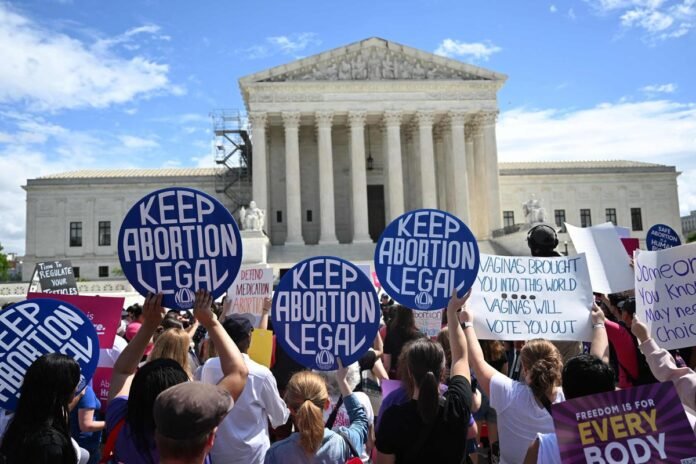Since then, the country has been split between the twenty or so states that have decreed bans or strong restrictions, mostly located in the south and center, and those on the coasts that have adopted new guarantees. The overall impact remains limited from a numerical point of view: the professional organization Society of Family Planning recorded an average of 79,031 abortions per month nationwide from July 2022 to March 2023, compared to 81,730 in April/May 2022, a decrease. of 3.3 per cent. “Many people continue to get the abortions they need, but they face several obstacles,” said Ushma Upadhyay, professor of public health and gynecology at the University of California, San Francisco, and co-author of this study.
” Russian roulette “
Clinic closings in a dozen states have forced tens of thousands of women to leave. In addition to the financial costs, it is not always easy to get a day off or to explain your absence to loved ones. Being organized also delays the intervention later in the pregnancy and can have a psychological impact. Not to mention the health risk. In a complaint, Texas resident Anna Zargarian said her water broke far too early for her fetus to survive, but she had to travel to Colorado to deport her. The flight was “terrifying”: “it was like playing Russian roulette: I could have a bleed, an infection or go into labor at any moment”.
In the first trimester, Americans can also use the abortion pill. But it’s illegal in several states, and those who get it on the Internet or through aid networks “face the risk of prosecution,” notes Ushma Upadhyay. As for those who are forced to continue their pregnancies, it is above all “the poorest of the poorest” and, given the deep racial inequalities in the country, often black or Hispanic women, the expert adds.
Five million
For her, the future is uncertain. For a year, many donors have mobilized to help women, “but in a year or two these private efforts will drop off,” she predicts. Likewise, the legal landscape remains unstable. Every restrictive law has been challenged in court, and the outcome of most appeals is not yet known, including in populous southern states like Georgia or South Carolina.
But the biggest unknown is the abortion pill. In April, a federal judge withdrew the marketing authorization for mifepristone (RU 486), which the United States Drug Administration (FDA) had granted in 2000 and which has since been used by more than five million women. His decision was put on hold by the Supreme Court, but an appeals court could soon validate it.
Under pressure
The fight also continues in the political arena. Led by President Joe Biden, a practicing Catholic who has long been wary of abortion, Democrats have made defending abortion rights one of their priorities. This strategy seems to have saved them from the slump announced in the midterm elections. The failed anti-abortion referendums in the very conservative states of Kansas and Kentucky have also dampened Republican fervor.
